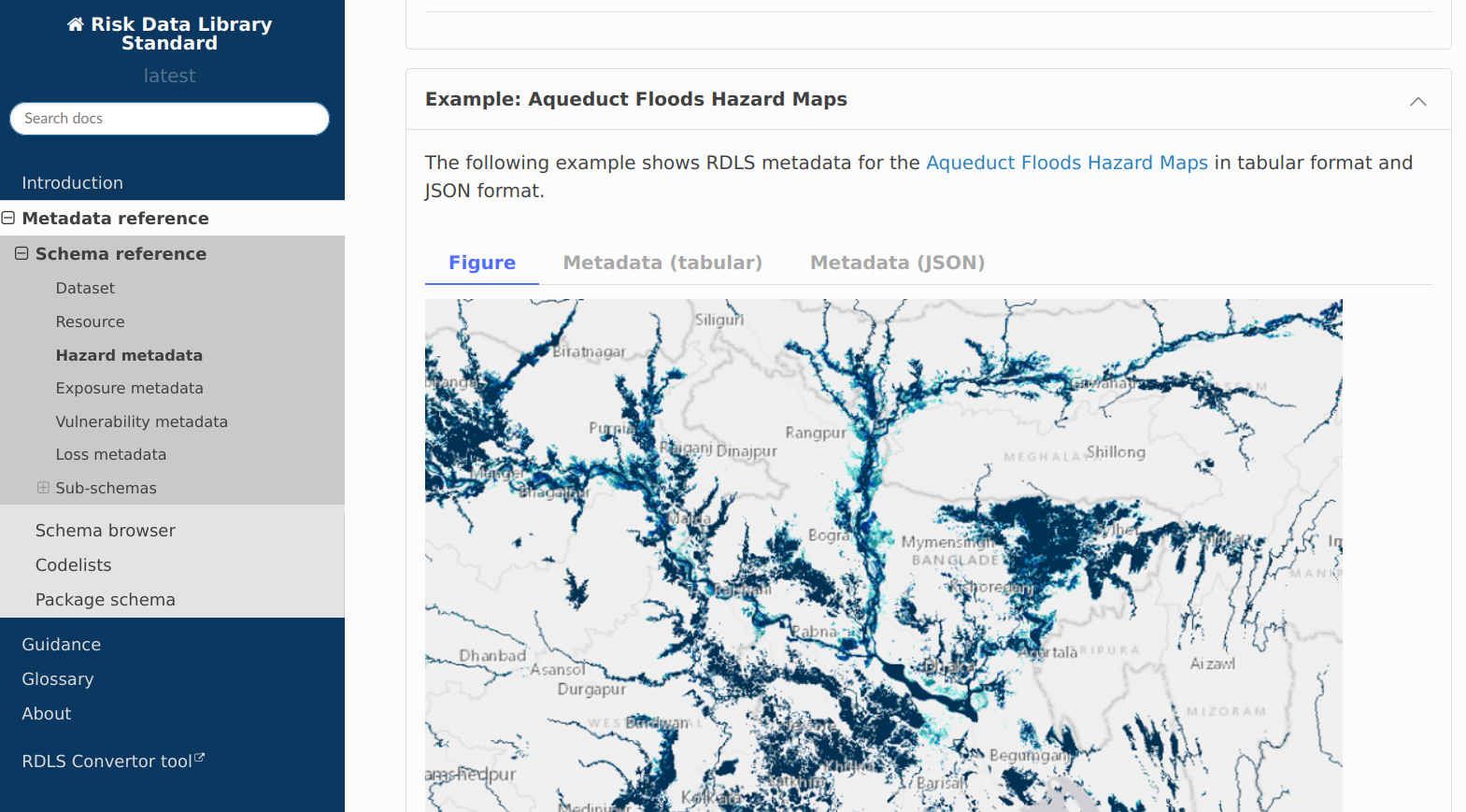A new open data standard for disaster risk information
The RDLS is essentially an open data standard for describing disaster risk information such as hazard, exposure, vulnerability, and loss datasets used in climate and disaster risk assessments. It also provides guidance on how to format and publish risk data itself.
The standard can handle multiple types of disaster and climate risk studies, either monetary or non-monetary, using historical disaster events or probabilistic analysis. It is also designed to support different types of exposure and vulnerability functions for buildings infrastructure, people and natural assets.

Practical benefits
In practice, the value of the RDLS will depend on the number of users who adopt it. Thankfully, it can respond to many different needs:
- Students and academics can use the RDLS to improve discoverability and reproducibility of their research in the field and make it easier to publish their results.
- Risk modelers can adopt the RDLS to compare and adapt risk models produced in high-income countries to make them better fit with lower-income context.
- Policy analyst can learn from the RDLS which disaster and climate risk studies have been conducted for a given location and find out about the hazard information gaps in the area.
- Software developers may use the RDLS to develop specific risk data tools, for instance to help with the generation of localized vulnerability indicators for buildings or population.
In the end, the real benefit of the RDLS will reside in the number of people who did not suffer from a disaster because someone, somewhere, was able to take a closer look at the data.
Standard governance
The development of the RDLS is coordinated and maintained by the Digital Earth team at GFDRR.
An initial version was developed as a database schema with principal contributions from the Global Earthquake Model (GEM) Foundation, UCL Epicentre, and the British Geological Survey (BGS), funded by the UK Government Department for International Developement, in 2016-2017.
In 2022-2023, a grant from the Swiss Re Foundation supported the development and promotion of the schema as an open data standard. The Open Data Services cooperative provided technical support to develop the standard according to open standard best practice. In 2025-2026, a grant from the Gates Foundation supported the further development and promotion of the standard with specific focus on improving capabilities to support urban scale risk assessments and information.
The RDLS is currently overseen by the RDLS Steering Committee composed of RDLS users and disaster risk experts from the disaster risk community. The development of the standard follows open principles and community contributions are welcome and encouraged.
For more information on how to contribute and adopt the Risk Data Library Standard, please see the RDLS Documentation site.






